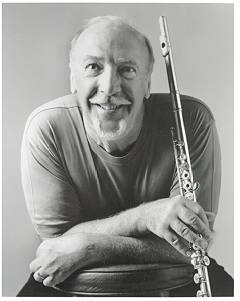

|
Bennett Morgan & Associates, Ltd. |
 Herbie Mann, credited as being one of the seminal jazz flutists, is probably best known for the musical odyssey that has taken him around the world. Long before the concept "world music" was coined, he was exploring the rhythms and harmonies of Africa, India, Cuba, Jamaica, the Middle East and Japan. But the country whose music has most influenced his playing and most touched his heart is Brazil - more about this later.
Herbie Mann, credited as being one of the seminal jazz flutists, is probably best known for the musical odyssey that has taken him around the world. Long before the concept "world music" was coined, he was exploring the rhythms and harmonies of Africa, India, Cuba, Jamaica, the Middle East and Japan. But the country whose music has most influenced his playing and most touched his heart is Brazil - more about this later.
|
Bennett Morgan & Associates, Ltd. •
p:
845-227-6065
•
f:
845-227-4002
•
1022 Route 376, Wappingers Falls, New York, 12590, US
|